1287 Sure was gonna be rough
Just One More Drive: The true story of a stuttering homosexual and his race car
by Robert James O’Brien
New Westminster: Tidewater Press, 2021 (2nd edition, first published 2017)
$21.95 / 9781990160028
Reviewed by Brett Josef Grubisic
*
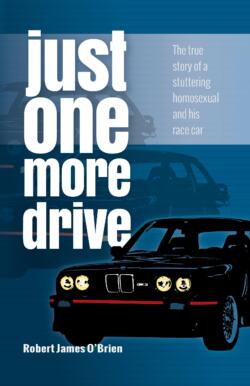 The “True Story of a Stuttering Homosexual and His Race Car,” Just One More Drive is Robert James O’Brien’s first title; but it’s not his first publication. Technically, the Drive of 2021 is a “substantially updated” version of a memoir that appeared in 2017. In the current edition’s “Author’s Note” O’Brien highlights the revised book’s “more satisfying conclusion.” By “more satisfying” he does not mean blissfully happy. Not even close. The “earlier book had a fairytale ending, but no life does,” the author remarks. With fairytale endings equated to tall tales, O’Brien’s “satisfying,” then, is closer in spirit to “realistic,” “honest,” and “authentic.”
The “True Story of a Stuttering Homosexual and His Race Car,” Just One More Drive is Robert James O’Brien’s first title; but it’s not his first publication. Technically, the Drive of 2021 is a “substantially updated” version of a memoir that appeared in 2017. In the current edition’s “Author’s Note” O’Brien highlights the revised book’s “more satisfying conclusion.” By “more satisfying” he does not mean blissfully happy. Not even close. The “earlier book had a fairytale ending, but no life does,” the author remarks. With fairytale endings equated to tall tales, O’Brien’s “satisfying,” then, is closer in spirit to “realistic,” “honest,” and “authentic.”
Readers in the mood for an inspirational feel-good life story with decisive victories — odds crushed, obstacles successfully navigated — can consider themselves warned. For O’Brien, total victories seem out of reach; even smaller ones often prove difficult to grasp.
From a childhood of bullying and colossal self-doubt in “a culture that maintained being gay was a death sentence” to an epilogue titled “Where is My Fairytale Ending?” Just One More Drive discloses four decades of undermined potential.
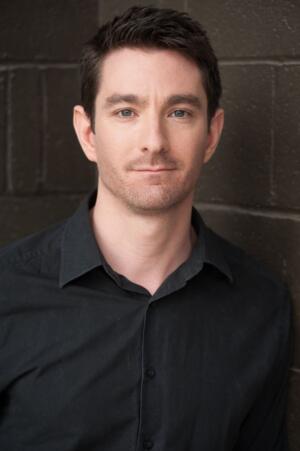
The final chapter of O’Brien’s memoir is an evocative illustration of stock-taking and sharing, in the author’s view, a paucity of worthwhile results:
The reality is that I am tired. While I have been busy working hard, others have been living their lives. I get scared sometimes. I am forty-three and alone. Sure, I still have time to find love and possibly have a family but now it will be harder. Professionally, I have been stuck for decades earning minimum wage…. Money is power and I have very little.
Strewn with terms like “wasted time,” “blamed,” “felt broken,” “no choice,” and “so angry” (and with conditional statements: “I have always imagined that, if I had been fluent, I would be successful”; “If I had been attracted to women, I would now be married, have healthy and happy children along with a property or two, a picket fence and a Labrador”), O”Brien ultimately reaches a kind a beleaguered and provisional self-tolerance. For his “journey of self-discovery,” he’s come to expect detours and setbacks.
Remarking “there is power in acceptance,” he lists two examples in that closing chapter: “My speech will always be with me and I will never change my sexuality. No amount of hard work niceness or hiding will change them.” Only four years earlier, he comments, it was “rather telling that I saw myself as a broken, stuttering homosexual. I told myself a story that I had to fix these things before I would deserve to live a fulfilling life. Exhausted in 2021 (“I am tired. I am so tried,” he admits) he’s left with a low reserve of hope for the sorts of fulfillment he senses that others possess in abundance.
*
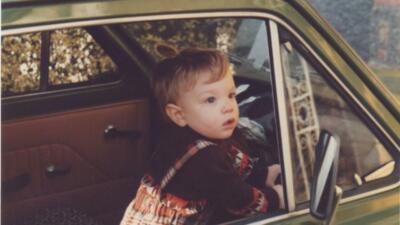
Following a brief prologue — an account of a suicide attempt in a car garage in 2013 — O’Brien depicts an arduous, embattled childhood and adolescence in a Dublin suburb. His awkward, self-loathing youth evolved into an adulthood where ongoing efforts at self-improvement clashed with struggle and missed chances.
Yearning to embody the kind of adulated masculinity he associated with sports cars (and with his father, an easygoing, self-made man), O’Brien instead faced a young man defined by general unease, anxiety, and shyness. “Catholic priests … loved me,” he quips, “I was quiet, obedient and easy to mould.” That gentleness, along with a stutter and sub-optimal writing and reading skills, made him a target in school (aka, “Satan’s Pit”), where he “felt stupid and ashamed.”
O’Brien counterbalances a thick catalogue of miseries with a forthright writing voice that’s welcome because it’s unexpectedly buoyant and intermittently lighthearted.

Youth, however, wasn’t easygoing. Adolescent O’Brien’s keen sense of being timid, weak, nervous, and scared intensified once news spread about his profound stutter. “Needing to feel safe was something I learned while in primary school, where I discovered that life was going to be hard,” O’Brien recalls. The teenager concluded, “having a stutter was an affliction and being gay was a curse and the life I imagined would never be mine.”
Dreading mounting outbreaks of severe acne and his “funny feelings” for men, he strove for invisibility. “[S]ocially crippled,” his home-spun coping strategies included suppressed feelings, magical thinking, and questionable short cuts (he’d order Coke, for instance, which he hated, but found “Coke” easier to say than his favourite, “strawberry milkshake”). Whenever he dared to look, he glimpsed “nothing manly” in the mirror. Happily, intensive courses for stuttering finally allowed him to comprehend that he “wasn’t the victim, a weak pathetic excuse of a man-child.”
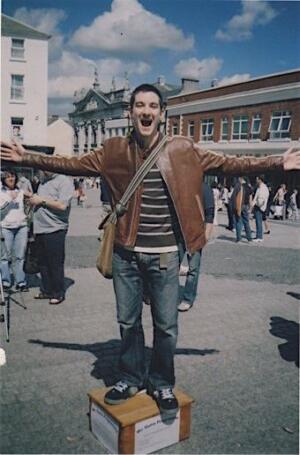
The memoir presents an admirably persevering albeit downtrodden figure, one who keeps trying despite being handed bum deals. Remarkably, that figure stays hopeful despite a lifetime of episodes with dispiriting lessons. He learns, as well, to keep his expectations low: “I felt alive and powerful and free,” O’Brien writes before adding, “That was the dangerous trap.”
As an adult he turned to classes at Vancouver Acting School, in part because he hoped to become someone who could make himself “feel things or rather, not feel things” (like those persistent attractions to men). A few years later, the “newly-out hot mess” sowed his oats. “I felt excited for what was to come next,” O’Brien exclaims. “It turned out to be beer and sex.”
He observes that his “life was an absolute joke” while outlining short-lived romances, dreams of fame and family, poverty, and knots of anxiety. For every “landmark achievement,” especially in managing his stutter, there’s isolation, depression, and self-doubt; therapy revealed a “broken, empty shell of a man” and a “ticking bomb of angst and rage.”
Pubescent O’Brien intuited that “life was going to be hard.” Now in early middle age, O’Brien more or less agrees with his younger self. But on good days he’s up for the challenge. As for the other days, he appears capable of using the tools he’s been given to handle them.
*
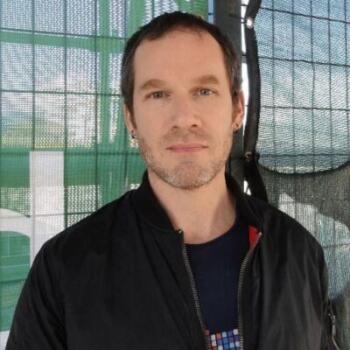
My Two-Faced Luck, the fifth novel by Salt Spring Islander Brett Josef Grubisic, was published in October 2021 with Now or Never Publishing — and reviewed here by Geoffrey Morrison. A previous book, Oldness; or, the Last-Ditch Efforts of Marcus O, was reviewed here by Dustin Cole. Editor’s note: Brett Josef Grubisic has also reviewed books by Kevin Holowack, Sarah Mintz, Cedar Bowers, Glen Huser, Dustin Cole and George Ilsley for The Ormsby Review.
*
The Ormsby Review. More Books. More Reviews. More Often.
Publisher and Editor: Richard Mackie
The Ormsby Review is a journal service for in-depth coverage of BC books and authors. The Advisory Board consists of Jean Barman, Wade Davis, Robin Fisher, Cole Harris, Hugh Johnston, Kathy Mezei, Patricia Roy, Maria Tippett, and Graeme Wynn. Scholarly Patron: SFU Graduate Liberal Studies. Honorary Patron: Yosef Wosk. Provincial Government Patron since September 2018: Creative BC
“Only connect.” – E.M. Forster
5 comments on “1287 Sure was gonna be rough”